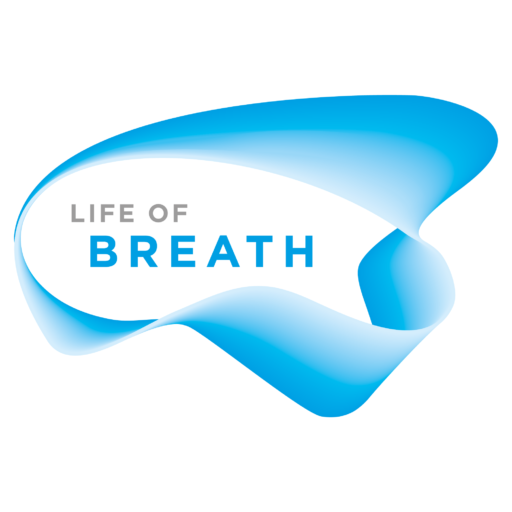Breathless in Oxford
Tina Williams, PhD student on the Life of Breath, writes:
On the 27th & 28th March, the Oxford Phenomenology Network hosted this inaugural conference at the Oxford Research Centre in The Humanities, bringing together a wide array of disciplines for a fascinating exchange of ideas, research, and critique within the context of medical and phenomenological studies in health. Its mission statement was to “explore the interrelations between phenomenology and health from a wide variety of perspectives” (event organisers Cleo Hanaway-Oakley and Erin Lafford; see Cleo’s post on the Life of Breath blog, ‘To breath is all that is required‘). This was certainly achieved, via talks on subjects from philosophical, medical, literary and scientific perspectives including the phenomenology of mental health; of disability; of motherhood; in literature; of living and dying; of breast cancer; in medical encounters, and many more.
Most of the talks were relevant to our project remit by virtue of the focus on phenomenology and health. However, some themes stood out, including link between chronic pain and breathlessness that runs through several previous posts (see, for example, Breathless in Cambridge and Signal Failure? Thinking outside the lung). Indeed, the conference provided refreshing opportunities to see how phenomenological insights have guided research. This was shown in Smadar Bustan and Sandra Kamping’s paper on combining phenomenology and experimental pain research. It reminded me of how models such as ‘total pain’ have been used to create analogous ‘total dyspnoea’ models, and how these alternative models incorporate a fuller picture of the impact of pain and suffering on the whole embodied and socially-situated person, rather than focusing on symptoms.
Luna Dolezal’s paper on ‘The Phenomenology of Shame in the medical Encounter’ brought forth issues of shame and stigma that arise within the context of the medical encounter vis-a-vis vulnerable, ill bodies and the effects that shame can have on the therapeutic alliance, diagnosis and treatment or medication adherence.[1] This resonates greatly for work within Life of Breath, as many patients with COPD and/or mental health conditions experience shame, guilt, stigma and blame related to ‘being responsible’ for their own condition, or being unable to control it. Shame and stigma need to be recognised by the medical practitioner and addressed to avoid further suffering, or misdiagnosis due to patients concealing their difficulties.
Another excellent paper was given by Anna-Luise Kirkengen on the biomedical and the phenomenological body. Criticising evidence-based medicine (EBM) for failing to respect human individuality or do justice to clinical complexity, she provides ‘an authentic sickness history’ to argue that “the interaction between body parts and systems, and between the woman’s bodily condition and her experiences” is needed to avoid EBM pitfalls. EBM splits the patient from her experiences and history so that she was viewed as having many unrelated illnesses to be treated separately. The underlying historical ‘cause’ of all of these related issues was ignored. EBM’s emphasis on multi-morbidity, poly-pharmacy and chronification meant that the patient’s suffering was exacerbated and prolonged by the biomedical view of the body. This study brought forth areas of interest to our project, not just via the powerful criticisms of the received view of the body in medicine, but the distressing consequences that neglecting the embodied life world and experiences of patients can result in.
Our own Havi Carel gave an excellent keynote speech on ‘The Philosophical Role of Illness’, arguing that chronic illness is philosophically illuminating. Firstly, through its power of modifying our normal structures of experience (thereby revealing our everyday, pre-reflective existence); and secondly via the opportunity for reflection it presents us with via the sometimes radical shift in our health and wellbeing that suspends our ‘natural attitude’. Finally, illness can alter the way we philosophize, changing what becomes salient to us; which values, meanings and projects we deem important.
Many of the talks on the second day seemed to pick up on the call to philosophize in healthcare. Gill Thomson gave the second keynote speech. Her talk ‘Using Heidegger to illuminate meanings within a health related context’ expertly applied Heideggerian insights and concepts to traumatic birth experiences and midwifery care. She prefaced her talk by pointing out that she isn’t a philosopher but a psychologist, using Heidegger as a social scientist would, in scientific methodologies and application in psychological research and practice. She questioned received notions, biases and traditions when appraising the expectant body by making reference to technology, machination and ‘the outbreak of massiveness’, incorporating these concepts with the practical failures in maternal care by powerful use of reports from patients who felt that their bodies were controlled and manipulated (some women likened it to torture). She suggested that we could use phenomenology to inform approaches and care to the expectant mother. For example, personal responsibility and das man, authenticity and inauthenticity can provide insights into practice: If we just accept the ways of working of others we become passive, inauthentic, and give our moral responsibility over to others (‘they told me to do it’). These themes are particularly pertinent when we consider the recent article in the Lancet calling for ‘respectful care for women and their babies’, stating that “such an initiative is sadly necessary”. Pregnant and vulnerable women are entitled to dignity, respect and professional care, but evidence shows that regardless of class or economic development, women frequently experience lack of respect, being listened to, physical and mental abuse, unconsented care and other indignities. This talk was therefore pertinent to philosophers and healthcare practitioners alike.
The organisers had some final thoughts. Cleo notes issues for further discussion (via email):
It’s very clear that further meetings like this are wanted and needed: in his closing remarks, Fredrik Svenaeus noted that, although he’s been working on phenomenology and health for over 10 years, this was the first major conference dedicated to the topic which signaled to him that ‘phenomenology and health’ is now a field in its own right. I’d also love to highlight the international (20 countries represented) and interdisciplinary (sociology, literary studies, anthropology, philosophy, psychiatry, primary healthcare, medical education, GPs, occupational therapists, psychotherapists, midwives, physiotherapists etc.) aspects of the conference.
Erin (again, via email) picked up on some more critical threads, as well as the placement and utility of phenomenology:
It seemed like lots of vocabularies were emerging for how we think about the relationship between phenomenology and health – some helpful, some perhaps not so helpful … There was an interesting comment during the roundtable at the end relating to how we can think about the relationship between phenomenology and health – which is that perhaps phenomenology offers us a second-person perspective, a relational mode, through which to approach others and ourselves. There was also some interesting debate in the roundtable about whether or not phenomenology should be ‘correcting’ medicine. Many people were concerned that this should not be the case but that medicine and phenomenology should be brought into relation with one another – not to criticize one another, but to offer different reflexive approaches to the same problems.
To summarize, this was an excellent and thought-provoking conference that brought together some of the brightest minds in phenomenology and health research. We look forward to future conferences.
[1] Luna Dolezal was one of the speakers at the official launch of the Life of Breath project in Bristol on Thursday May 14th, and you can listen to her talk (and several of the other papers) on the launch event page of our website.
The image shows the chapel at Keble College, Oxford, and was taken by the Bristol Project Manager.



